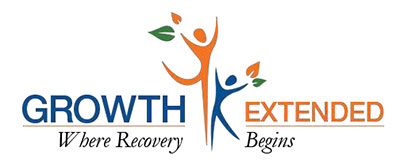SUBSTANCE ABUSE
Talk to a
SPECIALIST
about our
TREATMENT
SERVICES
Contact Us
Substance Abuse in Adults
Many adults turn to drugs and alcohol as a way to relieve stress or cope with negative emotions or mental health problems. Prescription painkillers have also become a growing risk for drug abuse, as patients who start taking the drug due to chronic pain may soon become addicted. It is important to find a treatment program that handles the underlying issues that fuel the abuse to reduce the risk of relapse.
In a sense, seeking help at Growth Extended is like joining a family of clinicians, therapists, doctors and fellow individuals in recovery who want the best for you or your loved one.
The age group most at risk of drug and alcohol abuse is young adults, especially those in college. About 21.5 percent of young adults aged 18 to 25 have used illicit drugs in the past month, while only 7.3 percent of adults aged 26 and older are current users of illicit drugs. However, there has recently been an increase in older adult use of illicit drugs. In 2002, the rate of current drug use in adults aged 50 to 64 was only 2.7, but by 2013 it rose to 6 percent. Alcohol abuse is more common, with 59.6 percent of young adults current drinkers, and 37.9 percent engaging in binge drinking and 11.3 percent heavy drinking. About 17.3 percent of young adults have a substance dependence or abuse problem to drugs or alcohol, and 7 percent of adults 26 and older do.
At Growth Extended, the adult substance abuse treatment program treats not just the abuse but also the underlying issues to reduce the risk of relapse. The experienced staff teaches healthy coping mechanisms and stress relief techniques, as well as helps to repair damaged relationships and provide support to take back control over one’s life.
Substance Abuse in Adults
Teens are also at risk of substance abuse and addiction problems. The journey to substance abuse takes a very different path and requires a very different approach to treatment in adolescents than it does with adults. Substance abuse in teenagers usually begins with peer pressure, curiosity – wondering what it feels like to be high, wanting to be cool, and a perceived or real need to excel in sports or schoolwork. Teens require treatment plans specialized for their level of emotional, intellectual, social, and physical needs.
Substance abuse in teenagers is not the road less traveled; about 30 percent of teens have experimented with alcohol at some point in their life, with about 3 percent meeting the criteria for alcohol abuse. About 23 percent have used illicit drugs, with about 3.5 percent classified as drug abusers.
At Growth Extended, there is a dedicated substance abuse treatment for teenage substance abuse that is tailored to 12-17 year old boys and girls needing structure and guidance through the recovery process to a life free of addiction. Here teens and their families find hope, respect, and compassion from a staff of dedicated professionals as coping skills are learned, family relationships are repaired, and self-respect is restored.
Substance Abuse Treatment Plan
Individualized treatment plans are created to ensure success in reaching long-term sobriety. Our substance abuse services include but are not limited to:
- Drug history evaluation
- Psychiatric consultations and family sessions
- Medication management
- Parent support groups
- 12-Step programs
- Daily exercise
- Weekday academic credit
- Positive peer interaction skills
- Stress reduction skills
- Relapse prevention programs
